
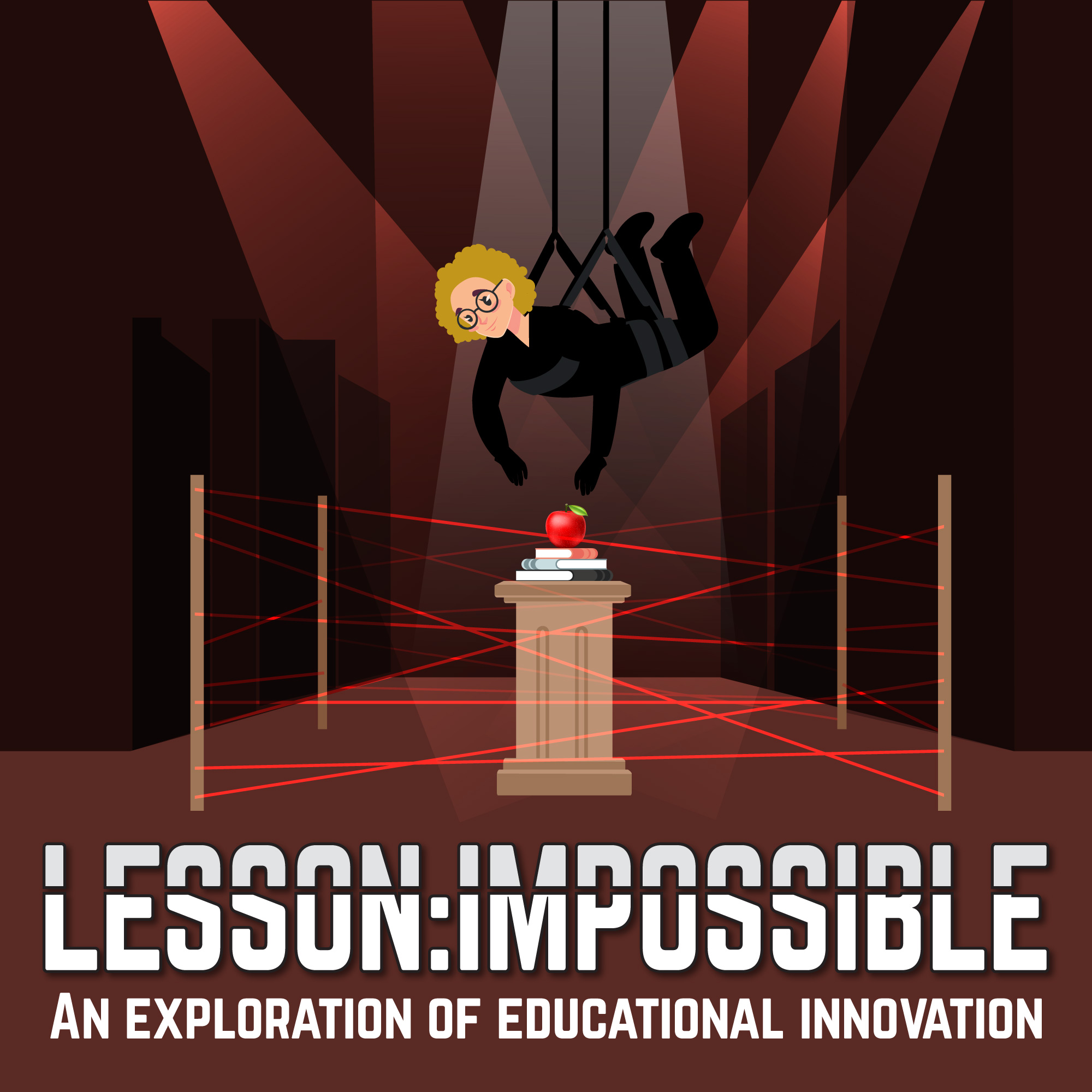
Your lesson, should you choose to accept it, is to listen to interviews with educators who are on the forefront of innovative pedagogy, with your host Aviva Levin. Check out www.lesssonimpossible.com for podcast info and blog.
Your lesson, should you choose to accept it, is to listen to interviews with educators who are on the forefront of innovative pedagogy, with your host Aviva Levin. Check out www.lesssonimpossible.com for podcast info and blog.
Episodes
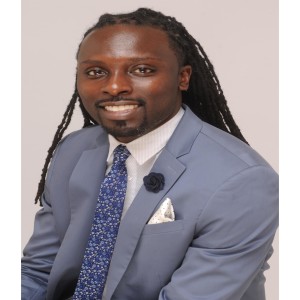
Sunday Apr 26, 2020
Agent Kwame Sarfo-Mensah (Teacher Identity)
Sunday Apr 26, 2020
Sunday Apr 26, 2020
Your lesson, should you choose to accept it, is to examine how your various personal identities intersect and influence how you interact with students and colleagues. The special agent assigned to help you with this task is Kwame Sarfo-Mensah, owner and founder of Identity Talk Consulting.
Kwame Safro-Mensah has over 14 years of experience in the classroom, teaching middle school math and science in Philadelphia, and then Boston, public schools. In addition to this, he has written two books and various articles, offers tutoring for students and online classes for first year teachers, and has his own internet talk show, “Identity Talk 4 Educators LIVE”, where he interviews guests about their personal stories and the specific elements that shape who they are as educators. Kwame was also named the 2019 Member of the Year by Black Educators Rock, Inc. and the 2019 Massachusetts Celebrity Educator of the Year! I talked to Kwame in early April, a little over a week after he and his family had come back to Boston, after spending a year in Addis Ababa, Ethiopia where his wife was working as a director for the Peace Corp. Kwame is obviously an incredibly busy person, however his family was in quarantine after returning to the States, which was unfortunate for them, but a great opportunity for the podcast, and I was able to speak to him over Zencastr.
Links:
- Kwame’s website
- His books:
- Articles:
If you want to find out more about what innovative educators are doing around the world, check out www.lessonimpossible.com. And if you like the podcast, please consider rating, reviewing and subscribing or forwarding it to a colleague. You can also follow Lesson: Impossible on Twitter, Facebook and Instagram.
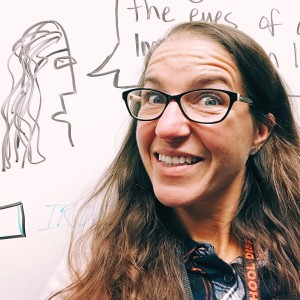
Wednesday Apr 22, 2020
Agent Megan Schutt (Gifted Education)
Wednesday Apr 22, 2020
Wednesday Apr 22, 2020
Your lesson, should you choose to accept it, is to find strategies, resources and school models that support gifted learners. The special agent assigned to help you with this task is Megan Schutt, of Blaine Middle School, in Blaine, Washington.
According to the National Association for Gifted Children, the definition for giftedness is “Students with gifts and talents who perform - or have the capability to perform - at higher levels compared to others of the same age, experience, and environment in one or more domains.” Whereas many see giftedness as truly a gift, one of my education professors once described being gifted as being “cursed with an adult brain in a child’s body”. While I can see both the benefits and the challenges for gifted individuals, the more I learn about giftedness, the more I see the many roadblocks to success embedded in a traditional school system. Fortunately there are educators like Megan Schutt who are searching out ways to best support their gifted students.
We discussed:
- Why she feels like a Jedi teaching online
- How she has taught all core Middle School subjects
- Why the struggle of teaching online has given her insights on how students feel working on collaborative projects
- How she was stymied by gifted students at the beginning of her career
- How Sir Ken Robinson inspired her through his TED talk
- How having her own children gave Megan her first tool to help gifted students: engaging authentically
- How the WAETAG (Washington Association of Educators of the Talented and Gifted) conference blew her mind
- Her five favorite resources:
- SENGifted (Supporting the Emotional Needs of the Gifted)
- Inquiry Partners
- Kimberly Mitchell’s “Experience Inquiry”
- PBLworks (Project Based Learning Works)
- Gifted Guru (Lisa Van Gemert)
- Why gifted kids are not the stereotypical ‘high flyers’
- Why it’s beneficial for both students and teachers to use the cluster model
- Why the school system has an obligation to educate and challenge all students, including gifted students
- Her favorite Science unit: using hyperdocs
- Her favorite Social Studies unit: project based learning in the community (inspired by Ted Dintersmith’s “What Schools Could Be”)
- Why all students should have access to the same opportunities that are given to gifted students
For more on what innovative educators are doing around the world, check out www.lessonimpossible.com. If you have suggestions for a teacher who would make an inspiring Lesson: Impossible guest, please email me at aviva.levin@gmail.com
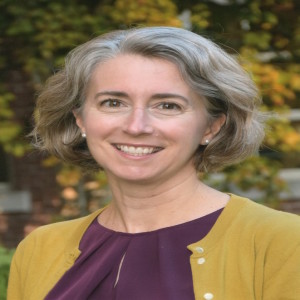
Sunday Apr 19, 2020
Agent Rebecca Blouwolff (Teaching Language Authentically)
Sunday Apr 19, 2020
Sunday Apr 19, 2020
Your lesson, should you choose to accept it, is to teach students how to use a foreign language using authentic resources and relevant units, with the goal of making proficient speakers. The special agent assigned to help you with this task is Rebecca Blouwolff of Wellesley Middle School in Wellesley, Massachusetts.
Rebecca and I share a similar background: we both started our careers intending to teach Social Studies, and we both found ourselves teaching French instead! To make a long story short: in my second year of teaching I was given a contract that included teaching French because I was the most qualified of the unqualified, and then I fell in love with it. (If you’re interested in the much longer version of this story, I spoke about my journey to becoming a language teacher on Kris Broholm’s Actual Fluency podcast.) Along with going back to school to become qualified for real, I was able to become better by finding role models online who represented the kind of language teacher that I aspired to be, and Rebecca Blouwolff is definitely one of them. And I’m not the only one who thinks she is amazing; the American Council on the Teaching of Foreign Languages (or ACTFL) named her the 2020 National Language Teacher of the Year!
In this episode we discuss:
- Rebecca’s transformation to a proficiency based teaching model
- Why she chooses to use authentic resources
- How she’s still learning how to let go of accuracy in favor of proficiency
- How to help parents understand new ways of language learning
- Her favourite unit: “Un Meilleur moi” (“A Better me”)
- Why she’s so generous with her resources
- Her experience (so far) with distance learning
- What she looks forward to for when she’s back in the classroom
- Advice for beginning teachers
- Areas she’d like to improve in
- Rebecca’s inspirations: Lisa Shepard, Amy Lenord, Natalia DeLatt, Creative Language Class, We Teach Languages, ACTFL books, Paul Sandrock, Leslie Grahn
- How listeners can contact Rebecca through Twitter or her Blog
Lesson: Impossible’s Website: www.lessonimpossible.com
Lesson: Impossible’s Twitter: https://twitter.com/avivalevin
If you have suggestions for a teacher who would make an inspiring Lesson: Impossible guest, please email me at aviva.levin@gmail.com
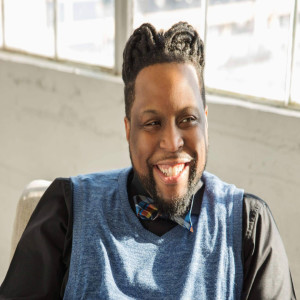
Wednesday Apr 15, 2020
Agent Andre Daughty (Social Media Connections)
Wednesday Apr 15, 2020
Wednesday Apr 15, 2020
Your lesson, should you chose to accept it, is to use social media to create connections with, and educate, your teaching colleagues. The special agent assigned to help you with this task is Andre Daughty, educational speaker and content creator, of Oklahoma City, OK
Andre Daughty has one of the most prolific online presences of any educator that I’ve seen: he’s on Twitter, Intagram, Facebook, has his own blog, multiple YouTube series, as well as an online office! Of course, he manages this all while facilitating workshops for schools and organizations. I wanted to talk to him about what being an educator that shares his life online is like, and give some perspective for others who may be considering doing something similar.
In this episode, we discuss:
- Andre’s path to teaching, that started verrrrrrry early
- Why Andre wants kids to have their first Black, male, teacher in elementary school
- Why using his own kids in his workshops makes them powerful
- How teaching is 90% performing, 10% planning
- Bringing laughter into the lives of teachers (“Laugh a Lil”)
- How we can build community digitally without ever meeting a friend in person
- Why he prefers video communications to blogging
- Using movies to bring forth teachable moments (“Reel Moments”)
- Finding the lessons in life that help inform his teaching (“Chew on This”)
- Why he’s willing to share his life online
- Combatting racism in education
- Tips for starting a YouTube account
- Getting positive and negative feedback from his audience
- His willingness to engage in difficult conversations
- Why he doesn’t block anyone on his Facebook page
- The many ways to engage with Andre online
How to connect with Andre:
- Facebook: https://www.facebook.com/TheAndreDaughty/
- Instagram: https://www.instagram.com/andredaughty/
- Twitter: https://twitter.com/andredaughty
- YouTube: https://www.youtube.com/user/ardaughty/videos
- Website/blog: https://andredaughty.org/
NOTE: Lesson: Impossible listeners: I want to thank you all so much for your ratings and reviews on iTunes, as it helps others find the podcast, as well as those who contact me with suggestions for guest special agents! Due to the responses I’m getting, and the fact that my schedule is a lot freer under Washington’s stay at home order, I’m going to try to release Lesson:Impossible episodes more often, so that is why you’re getting this episode on a Wednesday instead of the usual Sunday.
Lesson: Impossible’s Website: www.lessonimpossible.com
Lesson: Impossible’s Twitter: https://twitter.com/avivalevin
If you have suggestions for a teacher who would make an inspiring Lesson: Impossible guest, please email me at aviva.levin@gmail.com
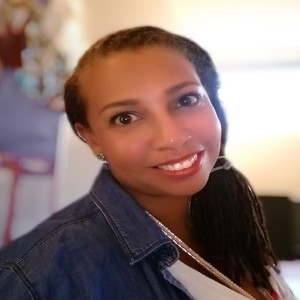
Sunday Apr 12, 2020
Agent Hedreich Nichols (Teaching Technology)
Sunday Apr 12, 2020
Sunday Apr 12, 2020
Your lesson, should you choose to accept it, is to help your students, and fellow teachers, use technology in a mindful and transformative way in the classroom. The special agent assigned to help you with this task is Hedreich Nichols, middle school technology teacher in Arlington, Texas.
In this episode we discuss:
- Being a teacher lead and mentoring other teachers around technology
- Why she wants to help teachers find and vet apps
- What to say to those who reject technology in classes
- Her favorite unit: students using social media to effect real world change
- Teaching students about building personal brands
- Educating other teachers about diversity
- Being "crotchety" (modeling good and bad moods; making family time explicit to students)
- Her dream school: multi-grade project-based learning focusing on interests and strengths
How to find Hedreich online:
- Website: https://hedreich.com/
- Twitter: @Hedreich and @MsNicholsTech
- Instagram: @HedreichNichols
- TikTok (NEW!): @MsNicholsTech
- And for fun, check out her amazing voice on Spotify.
- You can also listen to her being interviewed on the 'Cult of Pedagogy' Podcast, where she discusses nine ways to create a more inclusive classroom
Lesson: Impossible’s Website: www.lessonimpossible.com
Lesson: Impossible’s Twitter: https://twitter.com/avivalevin
If you have suggestions for a teacher who would make an inspiring Lesson: Impossible guest, please email me at aviva.levin@gmail.com

Sunday Apr 05, 2020
Agent Charles Williams (Planning for a Post-Covid World)
Sunday Apr 05, 2020
Sunday Apr 05, 2020
Your lesson, should you choose to accept it, is to explore the many ways COVID-19 can create positive changes to our educational systems. The special agent assigned to help you with this task is Charles Williams, principal of Plato Learning Academy, in Chicago, Illinois.
Charles Williams and I spoke at the end of March, as many schools were figuring out what education was going to look like in the coming days, weeks, and months. His perspective comes from being a principal in one of the many Chicago Public Schools, or as he refers to it, CPS. My perspective comes from being an educational podcaster as well as being a person who has a special aptitude for worrying about the future.
Like many of my interviews during this pandemic, it did not follow the orderly set of questions that I had gotten used to asking educators about their practice. Instead, it became a conversation about how Charles and I hope educational institutions can be transformed. Before we began recording, we had been joking about the various methods of communication we had each been trying out, and that topic quickly launched into talks of possible positive change.
In this episode we discuss how COVID-19 has the potential to positively transform educational systems, specifically allowing us to:
- Reconsider how we’re using assessments
- Utilize assessment in a vastly different way
- Examine what the school day looks like
- Explore how content is delivered
- Incorporate trauma-informed teaching
- Move beyond hashtags to real change
- Facilitate transparent communication
- Be aware of the terminology that we use
- Figure out what is essential and non-essential
- Highlight the value placed on educators
- Heighten collegial collaboration
- Increase parental involvement
Find out more about Charles Williams:
- Plato Learning Academy: http://www.platolearningacademy.org
- CWS Consulting: https://www.cwconsultingservice.com
- Charles’ Twitter: https://twitter.com/_cwconsulting
- The ‘Parking Lot Thoughts’ Videos: https://www.youtube.com/channel/UCUmY7pzvEaJfXDVXgSq_YXA
UPDATE FROM EPISODE 12: I wanted to say that we met our goal, and $200 has been sent to LaTezeon Humphrey Balentine. Although graduation is not going to look like what we expected when we recorded, I know LaTezeon will find a way to make sure the kids who need it get the money. So thank you to everyone who was willing to match my donation, or even just to share LaTezeon’s beautiful message of giving.
Lesson: Impossible’s Website: www.lessonimpossible.com
Lesson: Impossible’s Twitter: https://twitter.com/avivalevin
If you have suggestions for a teacher who would make an inspiring Lesson: Impossible guest, please email me at aviva.levin@gmail.com
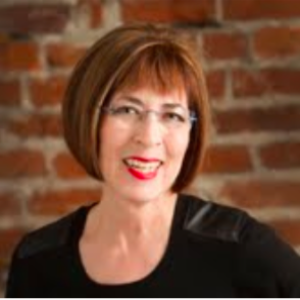
Tuesday Mar 31, 2020
Agent Rita Wirtz (Facing COVID-19) SPECIAL BONUS EPISODE
Tuesday Mar 31, 2020
Tuesday Mar 31, 2020
Your lesson, should you choose to accept it, is to critically examine what we are expecting of teachers, students, administrators and parents as schools are being shut down around the world. The special agent assigned to help you with this task is Rita Wirtz of Eugene, Oregon.
Rita Wirtz is the educational equivalent of Madeline Albright or Henry Kissinger: she’s seen it all, done it all, and weathered all the buzzwords and initiatives that have come and gone. I was honoured when she responded to an interview request made prior to COVID19, saying that she had an urgent message for teachers and administrators during this unprecedented time and it needed to be heard sooner rather than later. What follows is not a usual Lesson: Impossible episode, but an impassioned plea to do right by teachers and students in this trying time.
Find out more about Rita:
- Twitter: @RitaWirtz
- FB: Rita’s Facebook
- Website: RitaWirtz.com
- Instagram: @ritamwirtz
- Books: Stories From a Teacher’s Heart, Reading Champs
- BAM blog: https://www.bamradionetwork.com/user/ritawirtz/
- Specific blog post referenced in the episode: https://www.bamradionetwork.com/moments-reflections-leaving-footprints-on-your-reading-hearts/
Lesson: Impossible’s Website: www.lessonimpossible.com
Lesson: Impossible’s Twitter: https://twitter.com/avivalevin
If you have suggestions for a teacher that would make an inspiring Lesson: Impossible guest, please email me at aviva.levin@gmail.com
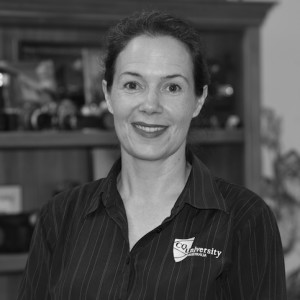
Sunday Mar 29, 2020
Agent Kate Ames (Online Education)
Sunday Mar 29, 2020
Sunday Mar 29, 2020
Your lesson, should you choose to accept it, is to explore the diversity of engaging online learning experiences. The special agent assigned to help you with this task is Professor Kate Ames, director of learning design and education, at CQUniversity Australia in Brisbane.
When I first started reading Kate Ames’ blog, and contacted her about a possible interview, distance education was a fairly niche topic. Since then, as the world has been attempting to slow the tide of COVID19, this has become a more pressing issue. My hope is that listeners who are currently facing the reality of distance and online education being thrust upon them will feel more confident as they move forward, and that those who are listening in the future where everything has hopefully gone back to normal can be equally intrigued by Kate Ames’ thoughtful practice.
In this episode Kate Ames discusses how:
- being a life-long student informs her teaching practice
- distance teaching means being a facilitator and curator of resources
- to get away from the in-class mindset
- to reimagine learning time when students aren’t in class
- not to overwhelm students
- student-centered learning engages reluctant learners
- teachers can deal with criticism in student forums
- online learning promotes diversity
- to monitor and get energy from your class
- to keep expectations clear for students and teachers
- connecting with students is not only possible, but enriching
Links:
- Kate's blog: https://onlineedreflections.wordpress.com/
- Kate's twitter: https://twitter.com/Kate_Ames
- Kate's research: http://cqu.academia.edu/KateAmes
- Kate's book on time management: “Time Management for Academic Impact: Controlling Teaching Treadmills and Tornadoes”
Thank you to everyone who has rated and reviewed Lesson: Impossible on iTunes! The podcast made it onto the US charts for the first time, which means more people have the possibility of discovering it and being inspired by my amazing guests. So if you were one of those who rated and reviewed, thank you very much, and if you haven’t already, please consider doing so!
A quick note: I had some technical difficulties at the beginning with our voices, but it soon smooths out to normal.
Lesson: Impossible’s Website: www.lessonimpossible.com
Lesson: Impossible’s Twitter: https://twitter.com/avivalevin
If you have suggestions for a teacher that would make an inspiring Lesson: Impossible guest, please email me at aviva.levin@gmail.com
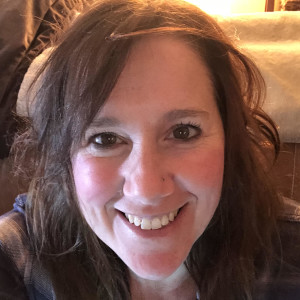
Sunday Mar 22, 2020
Agent Suzannah Evans (Podcasting Primaries)
Sunday Mar 22, 2020
Sunday Mar 22, 2020
Your lesson, should you choose to accept it, is to not underestimate primary students’ abilities to use technology, think metacognitively, and mentor their peers. The Special Agent assigned to help you with this task is Suzannah Evans a primary teacher and teacher mentor at Hygiene Elementary in the St. Vrain Valley School District of Longmont, Colorado.
In this episode, we discuss:
- Technology use with younger students
- Digitally inviting parents into the classroom
- How to give effective feedback
- Sharing updated brain science with students
- Student self-assessment and reflection
- Peer feedback and coaching
- The most adorable financial literacy podcast in the world
Links:
- Math Self Assessment
- Writing Rubric Self Assessment
- Powerful Teaching link
- Zones of Regulation
- Podcast Example
- Suzannah's Twitter: @SuzannahEvans2
Lesson: Impossible’s Website: www.lessonimpossible.com
Lesson: Impossible’s Twitter: https://twitter.com/avivalevin
If you have suggestions for a teacher that would make an inspiring Lesson: Impossible guest, please email me at aviva.levin@gmail.com

Sunday Mar 01, 2020
Agent LaTezeon Humphrey Balentine (Giving)
Sunday Mar 01, 2020
Sunday Mar 01, 2020
Your mission, should you choose to accept it, is to examine what your students need, whether it be representative books, positive attention or hygiene products, and try to find ways to meet those needs. The special agent assigned to help you with this task is LaTezeon Humphrey Balentine of Natchez, Mississippi.
LaTezeon is an incredibly inspiring teacher with one of the most open and giving hearts. I found her on Twitter where she always has motivating words, and many many books to give away to teachers and students. LaTezeon recently left classroom teaching to be an educational consultant at Education Galaxy, which provides online assessment, practice and instruction for students. She also has a children’s book, called “Fur Friends” coming out on April 24, 2020, with a percentage of her sales going to an animal shelter.
This interview involved a lot of firsts for me: the first interview with someone outside of Washington or British Columbia, the first online recording I’ve done, and the first time I’ve cried with my interviewee at the end of the interview.
Ms. Humphrey-Balentine’s goal is to provide two $200 book scholarships to students this coming June. Lesson: Impossible is happy to give $100, and will match up to another $100 that listeners are willing to give. So, if you donate through https://venmo.com/LaTezeon-Balentine and email me at aviva.levin@gmail.com or DM me at @avivalevin with how much you gave, I will add that to the total I will donate. Latezeon has given so much of her own money and time constantly, let’s help take a little of the burden off of her shoulders!
LINKS:
Donate to LaTezeon’s book scholarship: https://venmo.com/LaTezeon-Balentine
LaTezeon’s Website - www.lhbwithlove.com
LaTezeon’s Twitter - https://twitter.com/LHBLovesEDU
LaTezeon’s is an Educational Consultant for Education Galaxy: https://educationgalaxy.com
Books mentioned:
Piecing Me Together by Renée Watson
What Momma Left Me by Renée Watson
The Skin I'm In by Sharon Flake and Jason Reynolds
Lesson: Impossible’s Website: www.lessonimpossible.com
Lesson: Impossible’s Twitter: https://twitter.com/avivalevin
If you have suggestions for a teacher that would make an inspiring Lesson: Impossible guest, please email me at aviva.levin@gmail.com